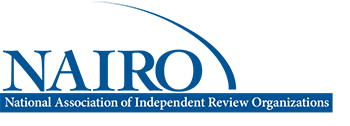Work from Home (WFH) Emerges as One Aspect of the New Business Continuity Model for Independent Review Entities
Though states are responding differently to the COVID-19 public health emergency (PHE), current stay at home orders in many regions and the hesitation for companies and employees to return to the office have brought attention to a previously under-the-radar element of business continuity. Namely, the potential for operational disruptions brought on by situations where your workforce cannot attend the office, or where your office is forced to close.
Accreditation and certification organizations have varying requirements to respond to the disruption of normal business, whether it is called business continuity, as in the case of URAC, PCI, or HITRUST; Disaster Management (NCQA); or Business Continuity Management (ISO). Emergency situations that can trigger a WFH business continuity model might be anything from the current PHE to prolonged power outages, severe weather, earthquake damage or other disruptive situations.
Many NAIRO members have adopted WFH solutions during the pandemic to ensure that essential review services are not disrupted. Perhaps more than ever, people must have access to essential healthcare treatments and services. Although access to hospitals and healthcare providers continues to be limited, IROs, via varying WFH models, help to maintain the integrity of the healthcare appeals process. IRO staff and IRO reviewers work remotely to ensure that fairly adjudicated appeals are completed without compromising protected health information (PHI) or personally identifiable information. Reviewers evaluate records that are maintained in secure portals, and records are returned via the same secure means. Staff can collaborate with reviewers through secure electronic means to facilitate the completion of the review without comprising timeliness or accuracy. NAIRO members have seamlessly adapted to this new way of performing reviews that represents the interests of all review stakeholders.
WFH is not a new concept for review entities. Many review entities have utilized this process in the past to accommodate other work-related issues, such as unexpected volume surges or the transition to a new corporate office location. WFH is a viable model for the current COVID-19 situation, and many of our member organizations have been successful in temporarily converting to the WFH model to sustain operations.
There are many factors to consider in developing and implementing an emergency WFH plan. It is important to keep in mind that WFH can trigger additional risk and a higher level of compliance because state and federal privacy laws come into play due to PHI and personally identifiable information.
This may be a good time to review and possibly update your Business Continuity Plan to include a contingency for emergency WFH policies and procedures. You also many want to include emergency situations and WFH into your organization’s risk assessment. Integrating these requirements into your Business Continuity policies and procedures will allow you to demonstrate a level of competence above the minimum requirements for your respective accreditation or certification programs.

